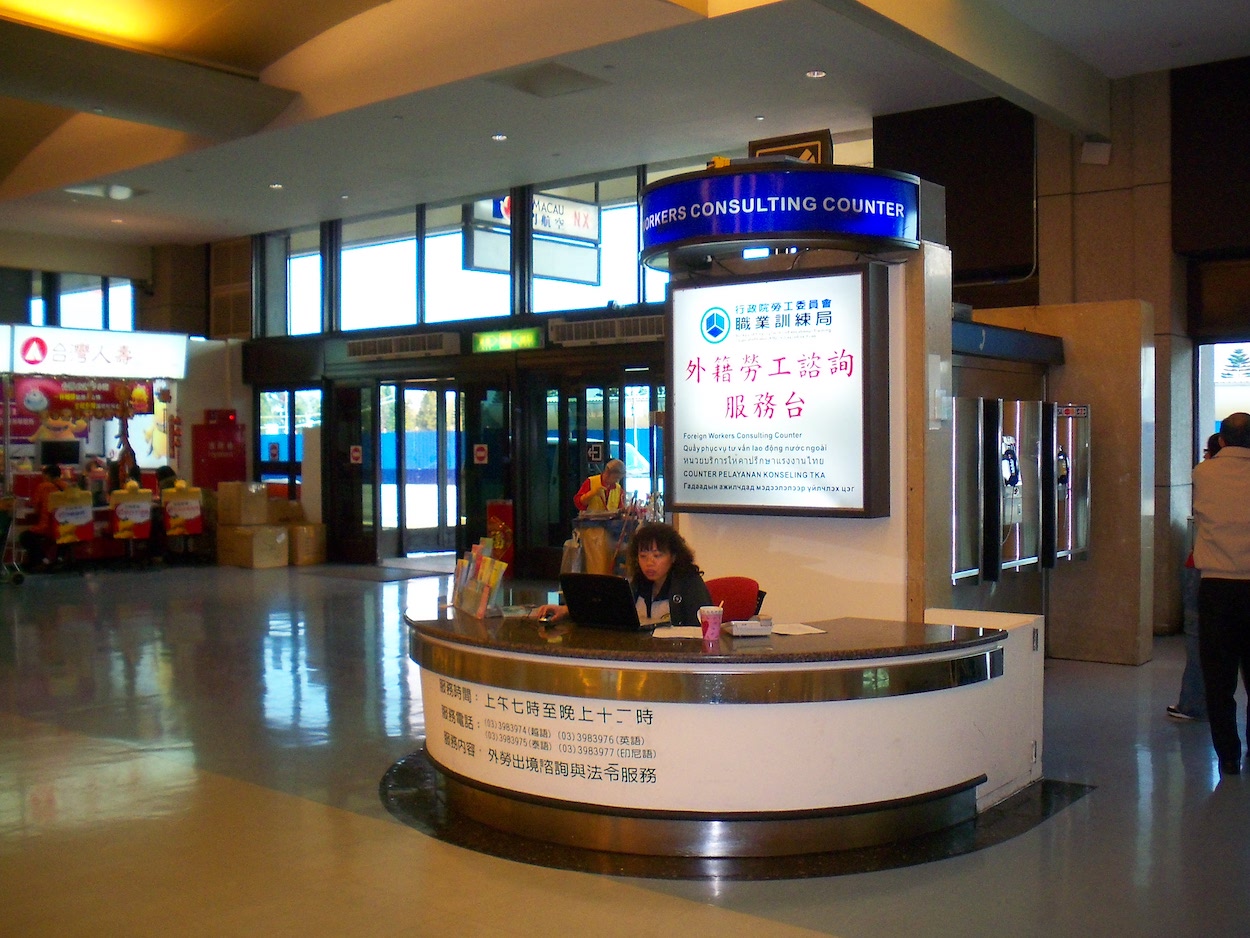by Brian Hioe
語言:
English
Photo Credit: Solomon203/WikiCommons/CC
A NEW REQUIREMENT that took effect starting on December 1st requires migrant workers to have COVID-19 insurance before they will be allowed to enter Taiwan, which will be paid for by their employer. As with other inbound travelers, migrant workers will be required to quarantine for fourteen days after entry. But while, in theory, this should insure migrant workers so that they have coverage in the event that they have COVID-19 when they enter Taiwan, the possibility remains that employers will try to pass the costs onto migrant workers.
Six insurance companies have been approved by the Financial Supervisory Commission to handle insurance policies for migrant workers. These are Cathay Century Insurance, Chung Kuo Insurance, Fubon Insurance, Hotai Insurance, Shinkong Insurance, and Taian Insurance. Insurance policies will cost 1,200 NT per person and cover hospitalization costs for COVID-19 cases for the thirty days after a migrant worker enters Taiwan. In such an event, the insurance policy will directly pay the hospital, up to 500,000 NT.
 Cathay Life Insurance building. Photo credit: tianmu Peter/WikiCommons/CC
Cathay Life Insurance building. Photo credit: tianmu Peter/WikiCommons/CC
Migrant workers will not be allowed into Taiwan unless their employer can provide proof of having purchased an insurance policy for them. The requirement stipulates punishment for companies that violate this measure or attempt to pass the cost onto migrant workers, with fines of 60,000 NT to 300,000 NT imposed on violators, who will be banned from applying for permits for migrant workers for two years. Taiwan is not the only country contemplating COVID-19 insurance policies for migrant workers currently, with other East and Southeast Asian countries that employ large numbers of migrant workers considering this.
Nevertheless, it would not be surprising if some employers of migrant workers try to do so. In June 2021, for example, there was an incident in Hsinchu in which a migrant worker broker was found to have sent 32 migrant workers to a regular hotel instead of a quarantine hotel, resulting in six testing positive for COVID-19 after PCR testing.
It is not uncommon for migrant worker brokers that arrange for migrant workers’ employment in Taiwan and their transportation to and from their home country or their employers to pass on costs to their workers. Silence is maintained by threatening retaliation or taking advantage of their workers’ inability to communicate in Chinese. More generally, labor inspections by government bureaus in Taiwan are often lax, with inspectors failing to take action unless they witness a violation taking place, as a result of which many violations go unreported.
Likewise, migrant workers have sometimes been made to disproportionately bear the costs for quarantines. One incident that led to criticism in December 2020 was when a migrant worker was fined 100,000 NT for violating quarantine for a total of eight seconds, for leaving an object outside of the room of a friend. This was contrasted to the light fines of 10,000 NT each imposed upon four DJs that visited Taiwan to perform at the Ultra Taiwan festival who broke quarantine for a longer period of time, in order to record a promotional video for the festival.
More broadly, there have been concerns about COVID-19 cases among migrant workers since clusters broke out among migrant workers at electronics factories in Miaoli in June 2021. The response of employers was to keep migrant workers confined to their dormitories for months on end, even well after the clusters subsided. Some social responses also took the view that migrant workers were a group particularly susceptible to spreading COVID-19, with random police searches of individuals suspected of being “runaway” migrant workers having led to a number of mistaken arrests in past months.
 Consulting counter for foreign workers in Taoyuan International Airport. Photo credit: 玄史生/WikiCommons/CC
Consulting counter for foreign workers in Taoyuan International Airport. Photo credit: 玄史生/WikiCommons/CC
The Ministry of Labor announced a points-based system for admitting migrant workers into Taiwan in November. With the stabilization of the COVID-19 situation in Taiwan, industry pushed for migrant workers to be admitted to Taiwan to cope with demand. The points-based system was introduced as a result of limited quarantine facilities, though plans are to temporarily suspend migrant worker entry into Taiwan around the time of the Lunar New Year, given the influx of Taiwanese returning to Taiwan for the holiday.
In the meantime, migrant worker groups continue for the abolition of the broker system and the institution of direct hiring practices on a government-to-government basis. As of late, the representative to Taiwan of the Philippines has been among those to call for the phasing out of brokers, as well as the Indonesian government. In respect, one observes growing momentum behind calls to abolish brokers. It is probable that the Taiwanese government will need to be pushed to action by pressure from other governments, particularly the origin country of migrant workers.

